1850 Zachary Taylor died, Millard Fillmore,
 US President US President
 Taiping rebellion in China Taiping rebellion in China
 Elizabeth Barrett Browning: "Sonnets from Elizabeth Barrett Browning: "Sonnets from
 the Portuguese" the Portuguese"
 Nathaniel Hawthorne: "The Scarlet Letter" Nathaniel Hawthorne: "The Scarlet Letter"
 Jenny Lind toured US Jenny Lind toured US
 R.W. Bunsen created gas burner R.W. Bunsen created gas burner
1851 Nathaniel Hawthorne: "The House of the
 Seven Gables" Seven Gables"
 Herman Melville: "Moby Dick" Herman Melville: "Moby Dick"
 Verdi: "Rigoletto" Verdi: "Rigoletto"
 1st double-decker bus introduced 1st double-decker bus introduced
 gold found in Victoria, New South Wales, Australia gold found in Victoria, New South Wales, Australia
1852 Harriet Beecher Stowe: "Uncle Tom's Cabin"
 David Livingstone explored Zambezi David Livingstone explored Zambezi
 Wells Fargo and Co. founded Wells Fargo and Co. founded
1853 Franklin Pierce, 14th US President
 peace between Britain and Burma peace between Britain and Burma
 Samuel Colt revolutionized manufacturing of Samuel Colt revolutionized manufacturing of
 small arms small arms
 hypodermic syringes used for injections hypodermic syringes used for injections
 telegraph established in India telegraph established in India
1854 Alfred Tennyson: "The Charge of the Light
 Brigade" Brigade"
 US Republican party founded US Republican party founded
1855 Alexander II, Czar of Russia
 Henry Wadsworth Longfellow: "The Song of Henry Wadsworth Longfellow: "The Song of
 Hiawatha" Hiawatha"
 Walt Whitman: "Leaves of Grass" Walt Whitman: "Leaves of Grass"
 Livingstone discovered Victoria Falls Livingstone discovered Victoria Falls
 Florence Nightingale introduced hygenic standards Florence Nightingale introduced hygenic standards
 Ferdinand de Lesseps to build Suez Canal Ferdinand de Lesseps to build Suez Canal
1856 French/Spanish frontier decided
 Gustave Flaubert: "Madame Bovary" Gustave Flaubert: "Madame Bovary"
 Neanderthal skull found near Dusseldorf, Germany Neanderthal skull found near Dusseldorf, Germany
1857 James Buchanan, 15th US President
 Indian mutiny against British rule, Delhi captured Indian mutiny against British rule, Delhi captured
 Royal Navy destroyed Chinese fleet Royal Navy destroyed Chinese fleet
1858 Treaty of Tientsin ended Anglo/Chinese war
 British proclaim peace in India British proclaim peace in India
 Suez Canal Company formed Suez Canal Company formed
 National Association of Baseball formed National Association of Baseball formed
 Ottawa became Canadian capital Ottawa became Canadian capital
1859 Charles XV, king of Sweden
 Charles Dickens: "A Tale of Two Cities" Charles Dickens: "A Tale of Two Cities"
 Edward Fitzgerald; "Rubaiyat of Omar Khayyam" Edward Fitzgerald; "Rubaiyat of Omar Khayyam"
 Charles Darwin: "On the Origin of Species by Charles Darwin: "On the Origin of Species by
 Natural Selection" Natural Selection"
 Karl Marx: "Critique of Political Economy" Karl Marx: "Critique of Political Economy"
 steamroller invented steamroller invented
1860 second Maori War began
 1st horse drawn tram 1st horse drawn tram
1861 Washington Peace Convention tried to preserve
 US union US union
 Congress of Montgomery formed Conferate States Congress of Montgomery formed Conferate States
 of America of America
 - South Carolina, Georgia, Alabama, Mississippi, - South Carolina, Georgia, Alabama, Mississippi,
 Florida & Louisiana ceceded Florida & Louisiana ceceded
 Abraham Lincoln, 16th US President Abraham Lincoln, 16th US President
 Confederate Army took Fort Sumter - outbreak Confederate Army took Fort Sumter - outbreak
 of US Civil War of US Civil War
 Charles Dickens: "Great Expectations" Charles Dickens: "Great Expectations"
 George Eliot: "Silas Marner" George Eliot: "Silas Marner"
 Oliver Wendell Holmes: "Elsie Venner" Oliver Wendell Holmes: "Elsie Venner"
 Pasteur developed theory of germ fermentation Pasteur developed theory of germ fermentation
 US began passport system US began passport system
1862 Emancipation Proclamation - all US slaves
 declared free declared free
 Sarah Bernhardt's acting debut Sarah Bernhardt's acting debut
 Victor Hugo: "Les Misérables" Victor Hugo: "Les Misérables"
1863 Lincoln's "Gettysburg Address" at dedication of
 military cemetary after battle military cemetary after battle
 Ismail, Khedive of Egypt Ismail, Khedive of Egypt
 George I, king of Denmark George I, king of Denmark
 Edward Everett Hale: "Man Without a Country" Edward Everett Hale: "Man Without a Country"
 Ebenezer Butterick develops 1st paper dress Ebenezer Butterick develops 1st paper dress
 pattern pattern
 1st stolen base in baseball by Eddie Cuthbert 1st stolen base in baseball by Eddie Cuthbert
 National Academy of Sciences founded, National Academy of Sciences founded,
 Washington D.C. Washington D.C.
1864 Maximillian of Austria, Emperor of Mexico
 General Ulysses S. Grant commander of General Ulysses S. Grant commander of
 Union forces Union forces
 General Sherman marched Union forces from General Sherman marched Union forces from
 Chattanooga through Georgia Chattanooga through Georgia
 massacre of Cheyenne & Arapahoe Indians at massacre of Cheyenne & Arapahoe Indians at
 Sand Creek, Colorado Sand Creek, Colorado
 Charles Dickens: "Our Mutual Friend" Charles Dickens: "Our Mutual Friend"
 Henrik Ibsen: "The Crown Pretenders" Henrik Ibsen: "The Crown Pretenders"
 Tolstoi: "War and Peace" Tolstoi: "War and Peace"
 Louis Pasteur invented pasteurization for wine Louis Pasteur invented pasteurization for wine
 Geneva Convention established "neutral zones" Geneva Convention established "neutral zones"
 for battlefield hospitals for battlefield hospitals
 "In God We Trust" 1st appeared on US coins "In God We Trust" 1st appeared on US coins
1865 Confederate States of America formally
 surrendered at Appomattox surrendered at Appomattox
 Abraham Lincoln assassinated by John Wilkes Abraham Lincoln assassinated by John Wilkes
 Booth Booth
 Andrew Johnson, 17th US President Andrew Johnson, 17th US President
 Leopold II, king of Belgium Leopold II, king of Belgium
 Lewis Carroll: "Alice's Adventures in Wonderland" Lewis Carroll: "Alice's Adventures in Wonderland"
 Mary Mapes Dodge: "Hans Brinker" or "The Silver Mary Mapes Dodge: "Hans Brinker" or "The Silver
 Skates" Skates"
 Mark Twain: "The Celebrated Jumping Frog of Mark Twain: "The Celebrated Jumping Frog of
 Calaveras County" Calaveras County"
 Joseph Lister initiated antiseptic surgery using Joseph Lister initiated antiseptic surgery using
 carbolic acid carbolic acid
 Thaddeus Lowe invented ice machine Thaddeus Lowe invented ice machine
 M.I.T. founded M.I.T. founded
 introduction of carpet sweeper introduction of carpet sweeper
 George Pullman designed 1st sleeping railroad cars George Pullman designed 1st sleeping railroad cars
 1st train holdup 1st train holdup
1866 Monet painted "Camille"
 Alfred Nobel invented dynamite Alfred Nobel invented dynamite
 Robert Whitehead invented underwater torpedo Robert Whitehead invented underwater torpedo
1867 Napoleon III withdrew support from Mexican
 Emperor Maximillian, Maximillian executed Emperor Maximillian, Maximillian executed
 US purchased Alaska from Russia US purchased Alaska from Russia
 Ibsen: "Peer Gynt" Ibsen: "Peer Gynt"
 Mark Twain: "The Jumping Frog" Mark Twain: "The Jumping Frog"
 Karl Marx: "Das Kapital" Karl Marx: "Das Kapital"
 Johann Strauss: "The Blue Danube" (waltz) Johann Strauss: "The Blue Danube" (waltz)
 Livingstone explored Congo Livingstone explored Congo
 gold discovered in Wyoming gold discovered in Wyoming
 Diamonds discovered in S. Africa Diamonds discovered in S. Africa
1868 US President Johnson impeached
 Louisa May Alcott: "Little Women" Louisa May Alcott: "Little Women"
 Renoir: "The Skaters" Renoir: "The Skaters"
 Tchaikovsky: Symphony No. 1 Tchaikovsky: Symphony No. 1
 badmitton created badmitton created
 Boston Red Stockings founded, 1st US pro Boston Red Stockings founded, 1st US pro
 baseball team baseball team
1869 Red River Rebellion in Canada
 Suez Canal opened Suez Canal opened
 R.D.Blackmore: "Lorna Doone" R.D.Blackmore: "Lorna Doone"
 famous ship "Cutty Shark" launched famous ship "Cutty Shark" launched
1870 Manitoba became Canadian province
 revolt in Paris, Third Republic revolt in Paris, Third Republic
 Italians proclaimed Rome their capital city Italians proclaimed Rome their capital city
 Jules Verne: "Twenty Thousand Leagues Under Jules Verne: "Twenty Thousand Leagues Under
 the Sea" the Sea"
 Heinrich Schliemann began Troy excavations Heinrich Schliemann began Troy excavations
 Tchaikovsky: overture of Romeo & Juliet Tchaikovsky: overture of Romeo & Juliet
 Robert E.Lee died Robert E.Lee died
 Standard Oil Company founded by John D. Standard Oil Company founded by John D.
 Rockefeller Rockefeller
1871 Rasputin born
 Lewis Carroll: "Through the Looking Glass" Lewis Carroll: "Through the Looking Glass"
 Charles Darwin: "The Descent of Man" Charles Darwin: "The Descent of Man"
 Jehovah's Witnesses founded Jehovah's Witnesses founded
 Verdi: "Aida" Verdi: "Aida"
 P.T.Barnum opened "The Greatest Show on Earth" P.T.Barnum opened "The Greatest Show on Earth"
 Great Chicago fire Great Chicago fire
 Stanley met Livingstone at Ujiji Stanley met Livingstone at Ujiji
 S.S.Oceanic, 1st of large modern luxury liners S.S.Oceanic, 1st of large modern luxury liners
 is launched is launched
1872 civil war in Spain
 Jules Verne: "Around the World in 80 Days" Jules Verne: "Around the World in 80 Days"
 Whistler: "The Artist's Mother" Whistler: "The Artist's Mother"
 Thomas Edison perfected the duplex telegraph Thomas Edison perfected the duplex telegraph
 George Westinghouse perfected automatic rail George Westinghouse perfected automatic rail
 air brake air brake
 1st international soccer game, England vs Scotland 1st international soccer game, England vs Scotland
1873 republic declared in Spain
 famine in Bengal famine in Bengal
 Tolstoi: "Anna Karenina" Tolstoi: "Anna Karenina"
 Cézanne: "The Straw Hat" Cézanne: "The Straw Hat"
 color photographs 1st developed color photographs 1st developed
 E.Remington and Sons produced 1st typewriters E.Remington and Sons produced 1st typewriters
 American football clubs adopted uniform rules American football clubs adopted uniform rules
1874 Britian annexed Fiji Islands
 Renoir: "La Loge" Renoir: "La Loge"
 H. Solomon introduced pressure cooking methods H. Solomon introduced pressure cooking methods
 for canning foods for canning foods
|

Herman Melville is widely regarded as one of America's greatest and most influential novelists.
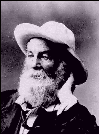
Walt Whitman is one of the greatest of 19th-century American poets.
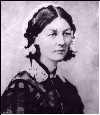
Florence Nightingale is considered to be the founder of modern nursing and a pioneer in sanitation and hygiene.
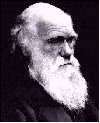
Charles Darwin revolutionized biology with his theory of evolution through the process of natural selection.

Abraham Lincoln is considered by many historians to have been the greatest American president.
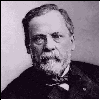
Louis Pasteur is considered the founder of microbiology.
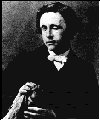
Lewis Carroll wrote children's books that are also distinguished as satire and as examples of verbal wit.
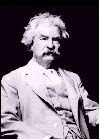
Mark Twain achieved worldwide fame during his lifetime as an author, lecturer, satirist, and humorist.
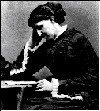
Louisa May Alcott is best known for Little Women.
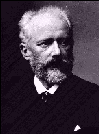
Peter Ilich Tchaikovsky was an eminent Russian composer.
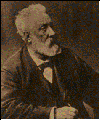
Jules Verne almost single-handedly invented science fiction.
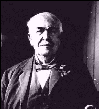
Thomas Alva Edison was one of the most prolific inventors of the late 19th century.
|












